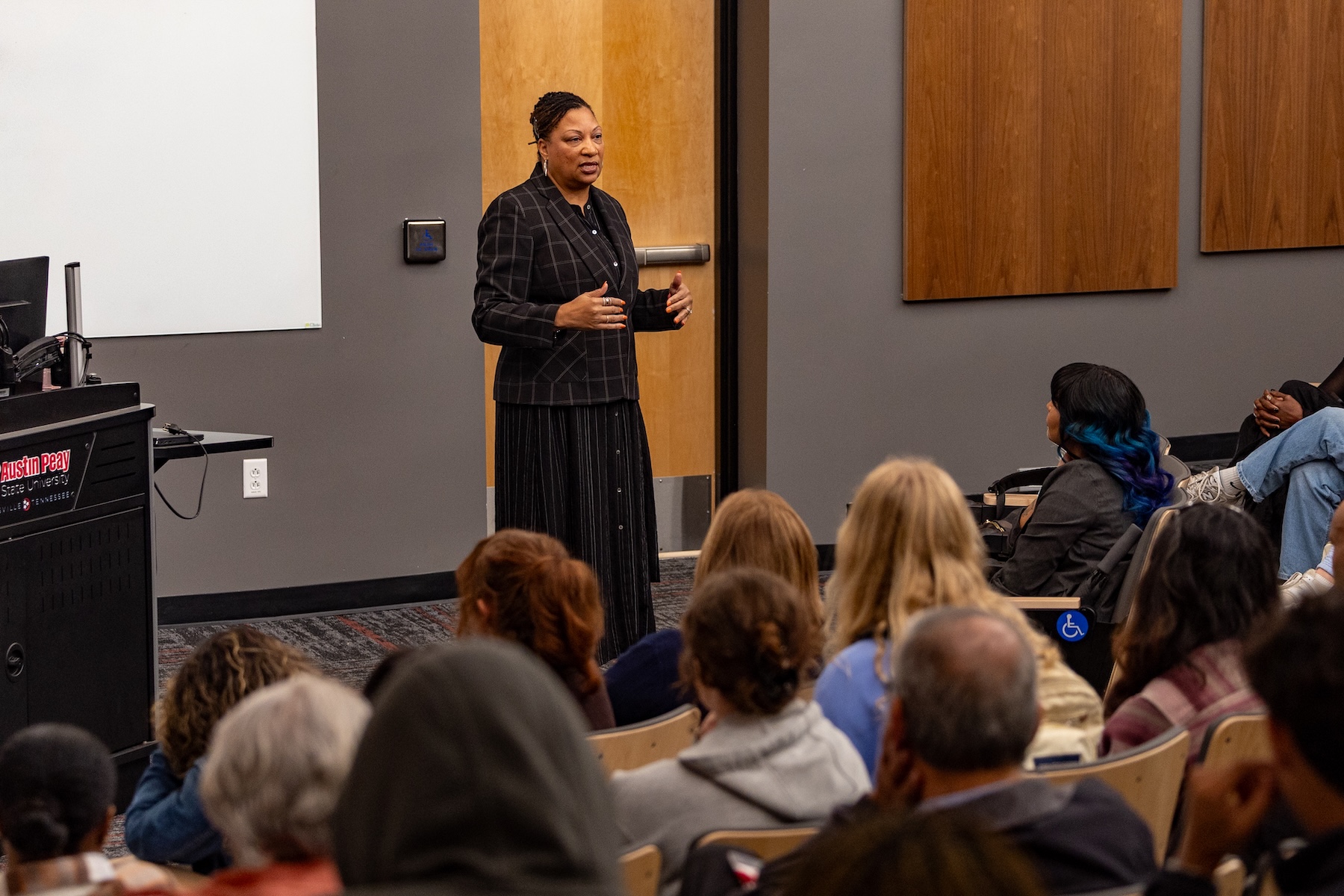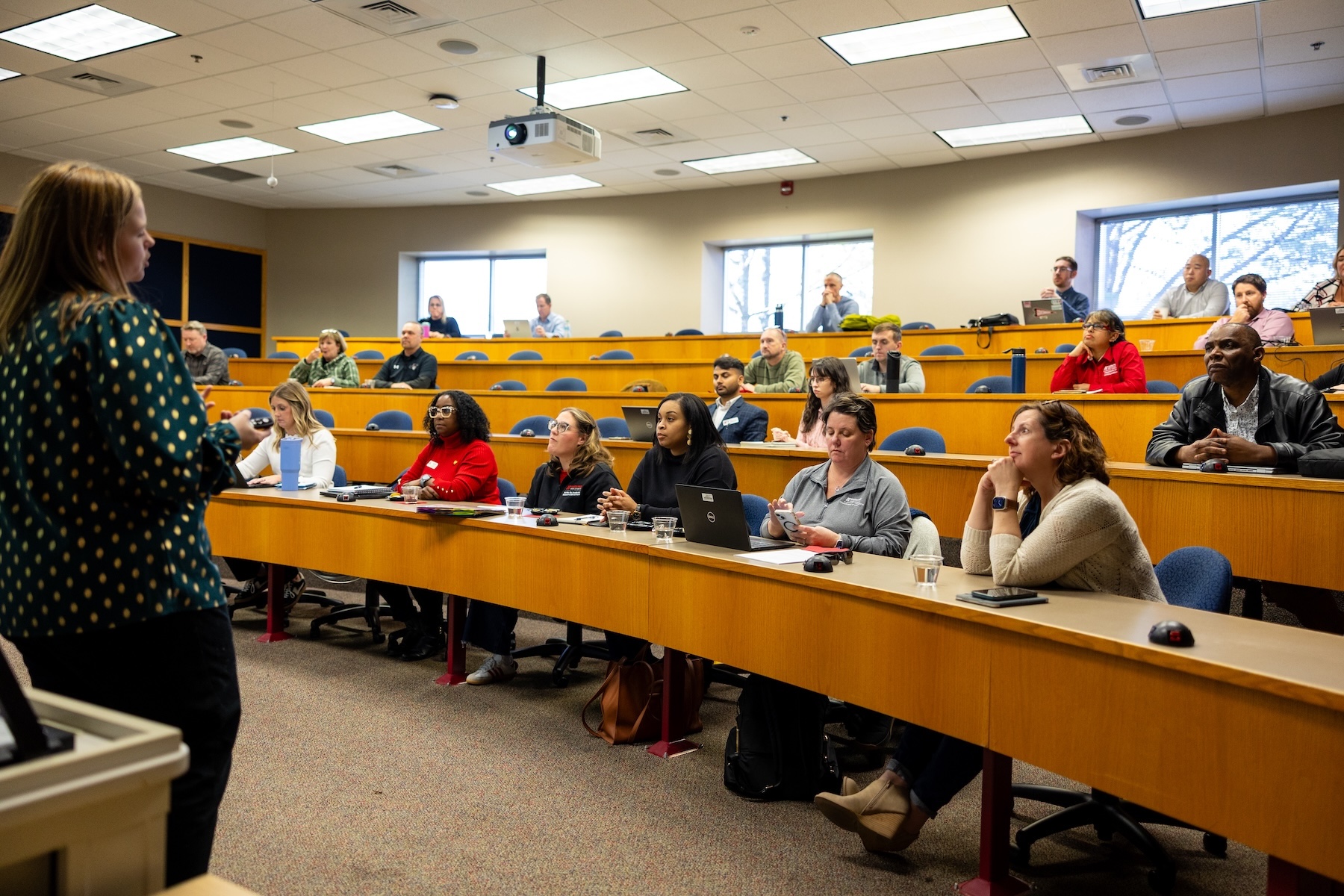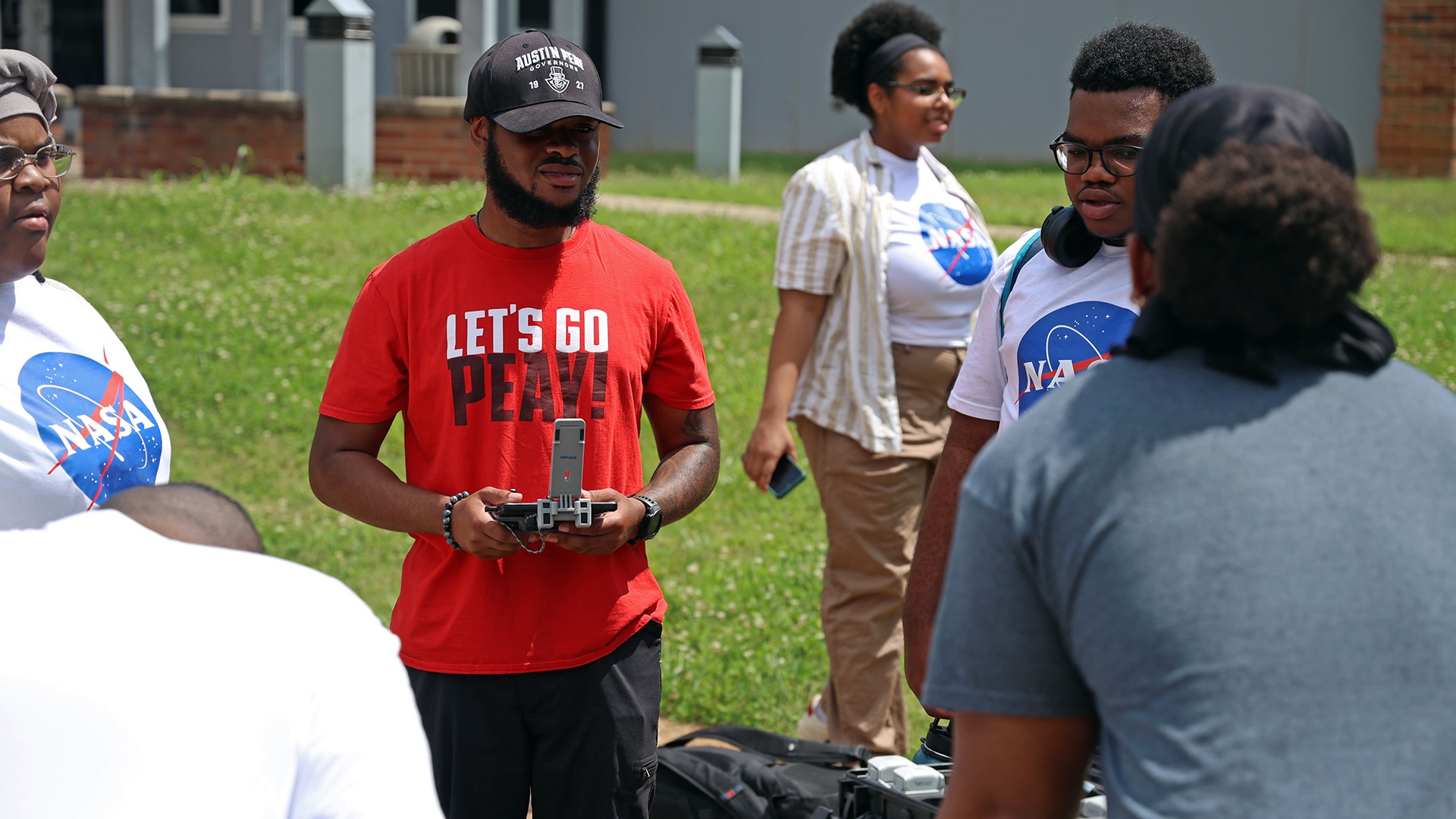Austin Peay Experience podcast looks at African American Expressive Culture in new episode

CLARKSVILLE, Tenn. – Next time you hear a song you like, take a few minutes to wonder about the origins of its words or tempo. It may be a popular tune on the radio, but Eboné Amos, Austin Peay State University assistant professor of African American Studies in the Department of Theatre and Dance, wants you to realize its influences might be a couple of centuries old.
“When we talk about when the enslaved Africans were bought here, and the traditions they brought with them, when we talk about African American expressive culture, we’re looking at what has been retained from that time and how it has since morphed and evolved and kind of became its own thing that we’re studying now,” Amos said. “So we talk about how the songs that were sung on the plantations are now still being sung today in churches, or maybe that cadence you may hear in a hip hop song.”
Amos is now enlightening college students to these long-standing influences with her class at Austin Peay – African American Expressive Culture. She recently discussed the course in the newest episode of The Austin Peay Experience Podcast.
“In being brought into this role, I was really focused on teaching Black history through arts and culture,” Amos said. “So African American Expressive Culture is a class that really delves into the expressiveness of Black people through visual art, though performance art.”
The APSU Office of Public Relations and Marketing launched the new podcast last fall to highlight what Austin Peay is doing to become the region’s university of choice by APSU’s centennial in 2027. The first season focused on “Forgotten Tennessee,” with episodes such as “Mixing Science with the Legend of the Bell Witch” and “The War at Home: German POWs in Tennessee.”
In season two, “In Session,” host Grayson Nicholson is looking at the fascinating classes offered at the University. The season’s first episode on The Beatles, released in late January, featured Dr. Stanley Yates, APSU professor of music, discussing the cultural impact the Fab Four had on the world. In episode two, Amos talks about how popular artists like The Beatles were influenced by African American culture.
“When you think about your favorite artists, I always often invite people to think about their influences,” she said. “So when you think about Elvis, are you thinking about also Chuck Berry? Let’s think about your favorite artist and then let’s think about who they sound like and where those references have come from. Let’s go back to the root of the thing and see who was the origin or inception of it.”
The episode is now live and available on Spotify, Apple Podcasts, Podbean and other popular podcast sites.
News Feed
View All News
David Hogan of Ribbon Communications and David "Buck" Dellinger of the Clarksville-Montgomery County Economic Development Council (EDC) will share their real-world perspectives on leadership, innovation, and career development during this semester's speaker series.
Read More
Title III grant funding recently allowed 16 faculty members from across campus to participate in the Career Readiness Academy, an extended workshop series focused on labor market tools, curriculum development, and National Association of Colleges and Employers (NACE) competencies.
Read More
The collaborative research project will explore how custom-designed drones can support communities during natural disasters and enhance healthcare delivery, particularly in areas that are difficult to access through traditional means.
Read More